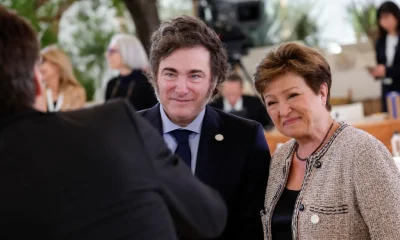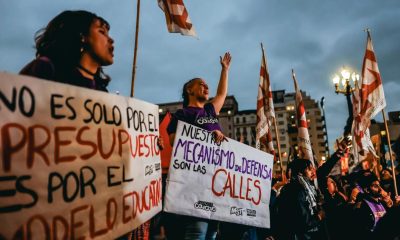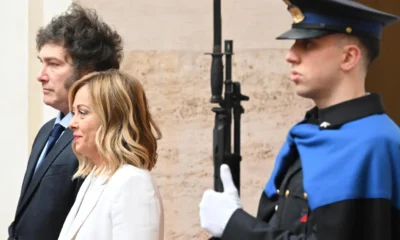International
Investment and technology, keys to the economic relationship between Argentina and Germany
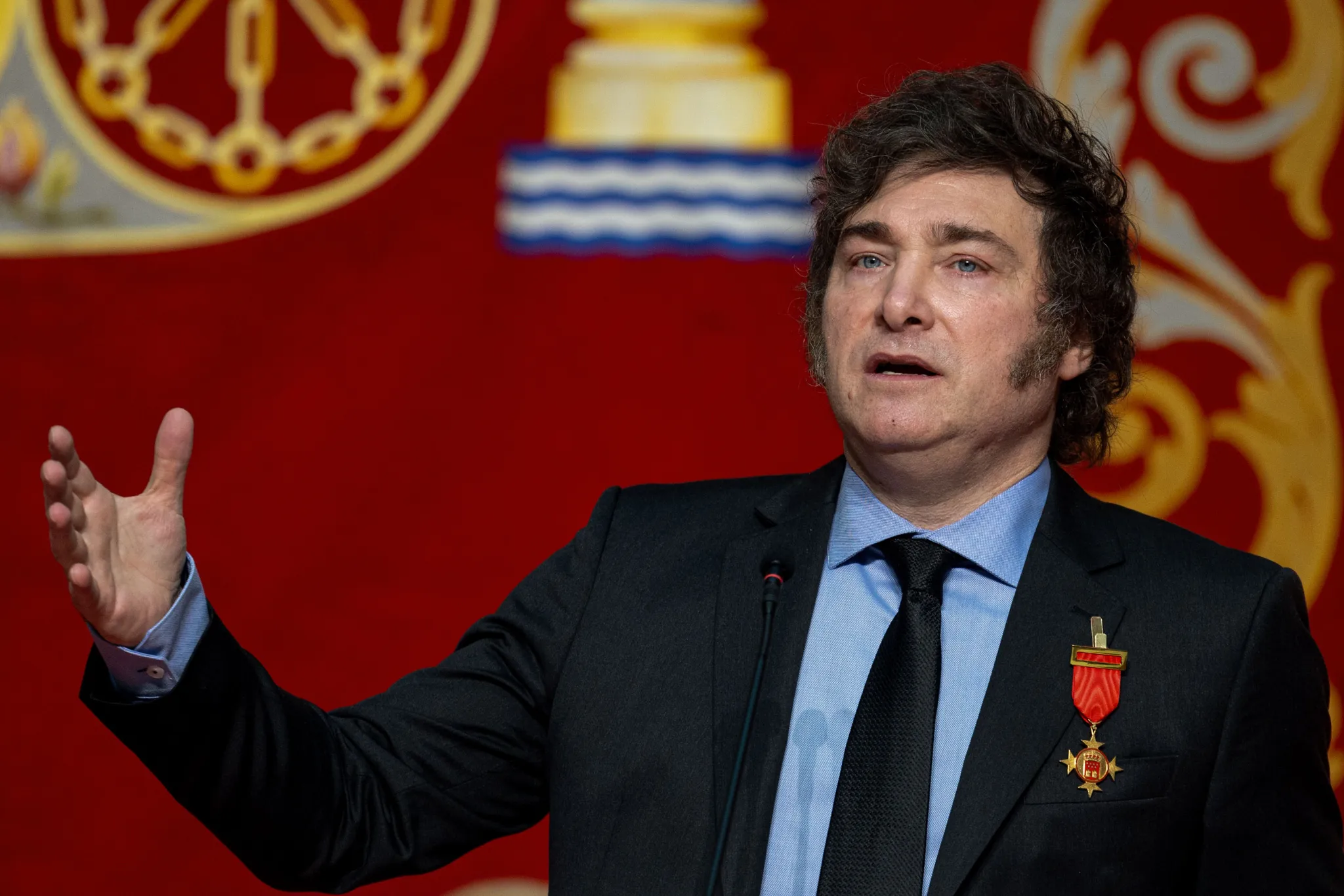
The relationship between Argentina and Germany – a country to which President Javier Milei will make a working visit this weekend – is based on foreign investment, cooperation in natural resources and trade exchange, supported by bilateral agreements and joint projects to promote economic and technological development in both countries.
Milei is scheduled to travel tomorrow, Saturday, to Germany, where he will be awarded in Hamburg (north) the Hayek medal that the homonymous society awarded him due to his achievements as a “reformer”.
The next day, the Argentine president and the German Chancellor, Olaf Scholz, will hold a meeting in Berlin at the head of their respective delegations.
Germany has shown interest in cooperating with Argentina in the exploration and production of critical minerals such as lithium and copper, essential for the energy transition and the manufacture of batteries. This aligns with Germany’s efforts to diversify its sources of supply and reduce dependence on China.
In 2023, the stock of total Foreign Direct Investment (FDI) in Argentina ammounted to 128,855 million dollars (about 120,382.7 million euros), which represents 10.4% more than the previous year and 26.4% of the Gross Domestic Product (GDP), according to data from the Ministry of Foreign Affairs.
The upward trend of FDI continues in 2024, with various sectors such as lithium extraction, hydrocarbons and financial technology attracting a considerable amount of foreign investment.
Germany – an important investor in the automotive, technology and manufacturing industry – is in eighth place in FDI in Argentina, after the United States, Spain, Brazil, the Netherlands, Chile, China and Italy.
In 2023, German companies in Argentina made a significant investment in various sectors.
A survey by the Argentine-German Chamber of Industry and Commerce (AHK) and the consultancy EY Argentina revealed that 74% of German companies planned to invest more than one hundred million dollars (about 93.42 million euros) in the South American country. These investments were mainly used for fixed assets and the incorporation of technology.
Germany’s FDI stock in Argentina is mainly focused on the manufacturing (35%), mineral and oil extraction (22.3%), and retail and wholesale sectors (10.9%).
German companies such as Siemens, Volkswagen and Bayer have a strong presence in Argentina, promoting innovation and technology transfer in various industries.
Projects and cooperation in critical minerals are another key point of the economic relationship between the two countries, since Argentina is one of the main producers of lithium, essential for the manufacture of batteries, and that in 2022 exports of this element increased by 234%.
In February 2024, representatives of Germany and Argentina discussed cooperation in the supply chain of critical minerals, such as copper and lithium, with the aim of reducing dependence on China.
Regarding Argentine investment in Germany, which is less significant, companies from the South American country are beginning to explore opportunities in high-tech and renewable energy sectors.
In terms of cooperation and strategic alliances, both countries have signed bilateral agreements to encourage investment and facilitate trade. Argentina and Germany collaborate in infrastructure and technological development projects, taking advantage of the German experience in these fields.
Trade between Argentina and Germany includes Argentine exports of agricultural and mineral products, and imports of German machinery and industrial products. This exchange is fundamental for the Argentine economy and benefits both countries by diversifying their markets.
In 2022, total trade between Germany and Argentina exceeded $3.6 billion, with a growth of 8% compared to 2021.
In March 2024, Germany exported products worth 169 million euros (181 million dollars) to Argentina and imported goods for 104 million euros, resulting in a positive trade balance of 65.3 million euros (70 million dollars) for Germany.
Exports from Germany to Argentina include machinery, vehicles, chemicals and pharmaceuticals. The European nation is a key supplier of advanced technologies and industrial equipment necessary for various sectors of the Argentine economy.
Meanwhile, imports from Germany from Argentina focus on agricultural products and food, such as soybeans, wine and meat, as well as minerals.
The commercial relationship benefits from the complementarity between the economies, where Argentina provides raw materials and food, and Germany provides technology and manufactured products.
Both countries are working on closing a free trade agreement between the European Union (EU) and Mercosur, which could further enhance trade exchange and open up new business opportunities.
This agreement has been the subject of long negotiations and currently faces significant opposition from several EU member countries, especially France and Austria.
In contrast, countries such as Germany, Spain and Portugal are in favor of moving forward with the agreement, highlighting the economic benefits and the need to strengthen trade relations with Latin America.
International
Rubio rules out 2028 presidential bid if Vance runs

U.S. Secretary of State Marco Rubio said he would not seek the presidency in 2028 if current Vice President JD Vancedecides to run as the Republican nominee to succeed President Donald Trump.
“If JD Vance runs for president, he will be our candidate, and I will be one of the first people to support him,” Rubio said in an interview with Vanity Fair, in which he appeared alongside other senior members of the presidential cabinet.
Rubio, 54, and Vance, 41, are widely viewed as two of the leading Republican figures who could headline the party’s ticket in the 2028 election. Under the U.S. Constitution, Trump is barred from seeking another term after completing two presidential mandates.
In a lighthearted moment during the interview, Vance jokingly offered photographers $1,000 if they managed to make him look better than Rubio in the photos. Both leaders have received public backing from Trump, who last October floated the idea of a joint ticket featuring Rubio and Vance, without clarifying who would lead it.
“I think that if they ever teamed up, they would be unstoppable. I don’t think anyone would run against us,” Trump said at the time.
White House Chief of Staff Susie Wiles, who also took part in the interview, confirmed that Trump does not intend to violate the 22nd Amendment, which prohibits a third presidential term, though she acknowledged that the president is “having fun” with speculation about a possible return to office.
Rubio, the son of Cuban immigrants, served as a Republican senator from 2010 to 2025. He sought the party’s presidential nomination in 2016 but was defeated by Trump after a bruising primary contest. His name was floated as a potential vice presidential pick in 2024, but Vance ultimately secured the spot. After taking office, Trump appointed Rubio as secretary of state, making him the first Latino to hold the position.
International
Authorities search for armed and dangerous suspect in fatal Brown University attack
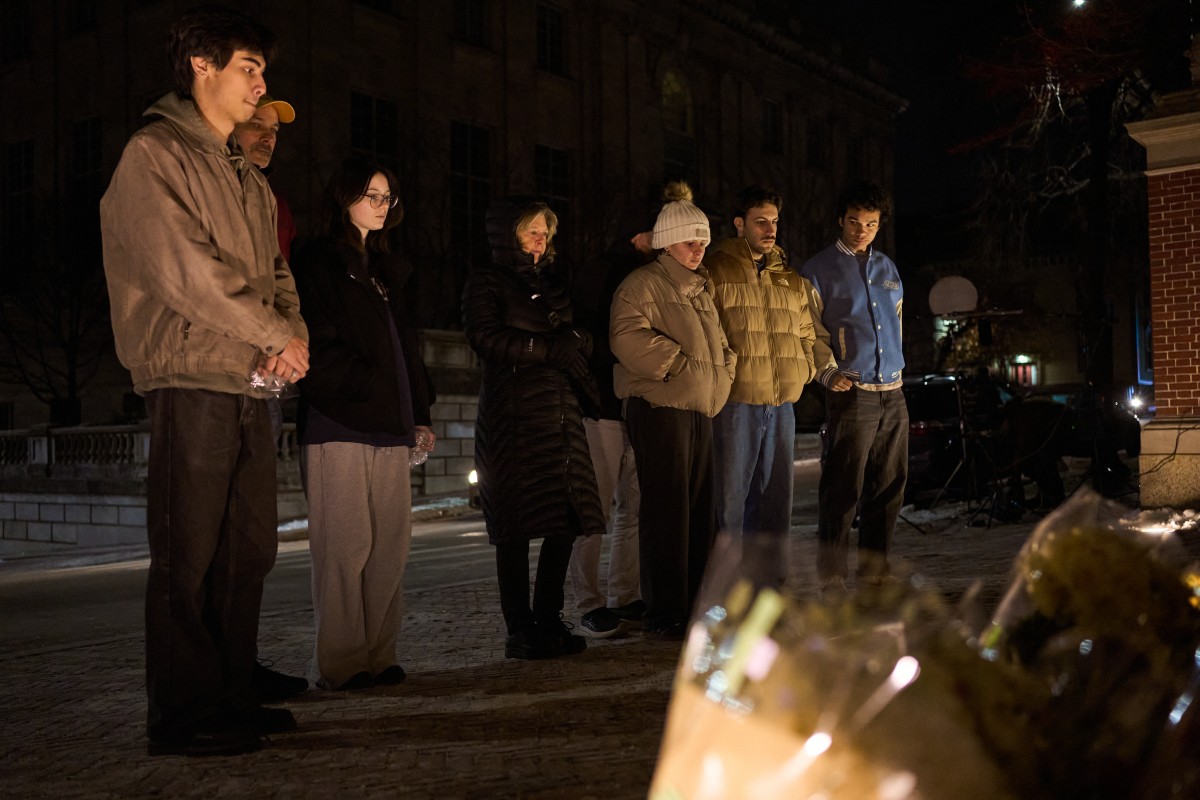
According to the statement, investigators are “seeking the public’s help to identify and speak with an individual” who was seen “near” the suspect at the time of the attack.
The Providence Police Department in Rhode Island released three photos of the person of interest, whose face has been blurred. In the images, the individual is wearing navy blue clothing, what appears to be a green hood, and carrying a light-colored backpack.
Earlier, authorities had released several photos and videos of a suspect described as “approximately 5 feet 8 inches tall, with a stocky build,” dressed in dark clothing, with their face covered by a surgical mask and wearing a beanie. The suspect’s identity remains unknown.
Authorities are offering a $50,000 reward for any information leading to the identification, arrest, and conviction of the person responsible for the killings, who is considered armed and dangerous.
The gunman opened fire on Saturday at Brown University’s engineering and physics building, where exams were being held, killing students Ella Cook and Mukhammad Aziz Umurzokov. The names of the nine people injured have not been released.
International
Police investigate deaths of Rob Reiner and wife as apparent homicide
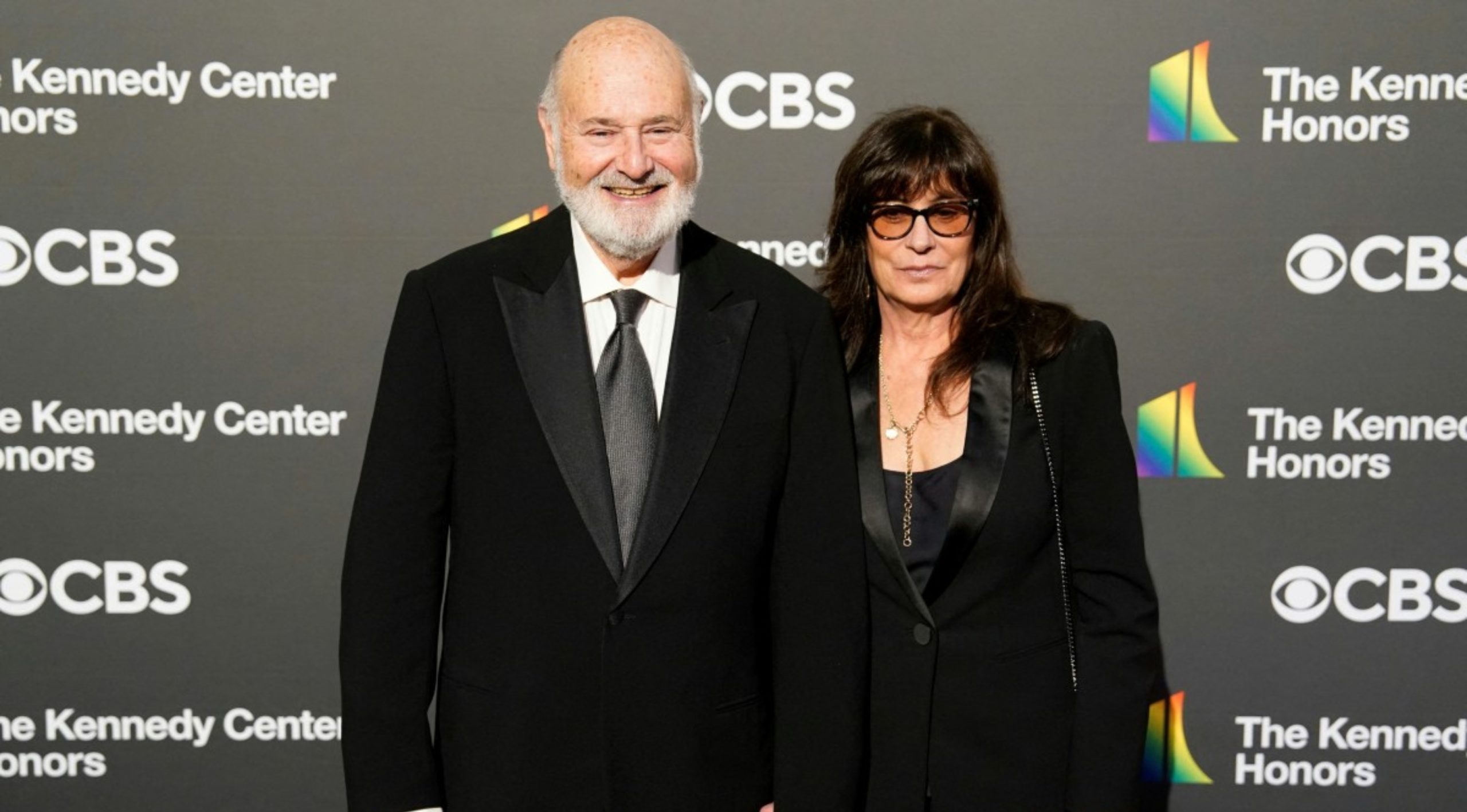
The Los Angeles Police Department (LAPD) is investigating the deaths of Hollywood actor and filmmaker Rob Reinerand his wife as an “apparent homicide,” amid a wave of tributes to the director of classics such as When Harry Met Sally.
According to U.S. media reports on Sunday, Rob Reiner and Michele Singer Reiner were found dead at their Los Angeles mansion with what appeared to be stab wounds.
Several political figures shared messages of condolence following the reported deaths of the director of A Few Good Menand his wife.
While the LAPD did not officially confirm the identities of the victims, it stated that homicide detectives were dispatched to the Reiner residence.
“At this time, no additional details are available and the investigation into an apparent homicide is ongoing,” the Los Angeles Police Department said in a statement posted on social media.
LAPD Deputy Chief Alan Hamilton told reporters that no arrests have been made and that no individuals are currently being questioned as suspects.
“I’m not going to confirm whether anyone is being questioned at this moment or not. We are going to try to speak with as many family members as we can,” Hamilton said.
CNN reported that a family spokesperson confirmed the deaths of Reiner and his wife.
California Governor Gavin Newsom, former U.S. President Barack Obama, and former Vice President Kamala Harrisissued statements expressing their condolences.
-

 Central America3 days ago
Central America3 days agoPanama seizes over three tons of drugs hidden in Caribbean port container
-

 International2 days ago
International2 days agoPolice investigate deaths of Rob Reiner and wife as apparent homicide
-

 International4 days ago
International4 days agoSeveral people shot in attack on Brown University campus
-

 Central America2 days ago
Central America2 days agoOAS urges swift recount in Honduras as election results remain uncertain
-

 Central America1 day ago
Central America1 day agoBukele says AI partnership with xAI will transform public education in El Salvador
-
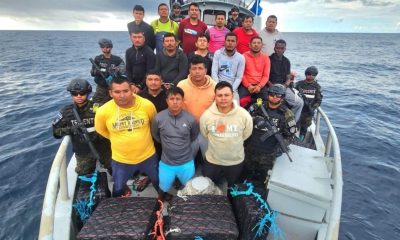
 Central America1 day ago
Central America1 day agoEl Salvador ranks among top countries in the Americas in fight against organized crime
-

 International4 days ago
International4 days agoU.S. and Mexico Reach Deal to Address Water Deficit Under 1944 Treaty
-

 International5 hours ago
International5 hours agoRubio rules out 2028 presidential bid if Vance runs
-
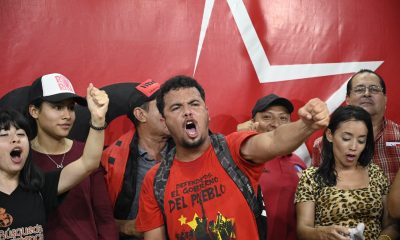
 Central America6 hours ago
Central America6 hours agoArrests and clashes in Tegucigalpa as vote count continues after Honduras election
-

 International6 hours ago
International6 hours agoAuthorities search for armed and dangerous suspect in fatal Brown University attack

























